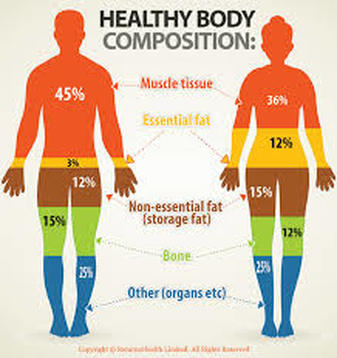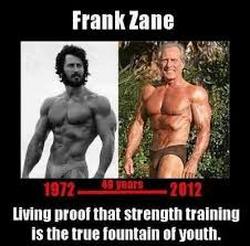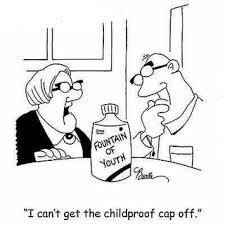Over the years we have been led to believe that aerobic exercise is the key to burning fat and losing weight. Although many scientific studies have shown that aerobic exercise can reduce the risk of cardiovascular disease and prevent the onset of diabetes whilst preventing some cancers, research has also shown that by itself it is not sufficient for consistent fat loss.
The most effective fitness programme consists of both cardiovascular elements but perhaps even more important as we age, a resistance strengthening element. Such a combination works well as it is the best way to change your body composition.
The most effective fitness programme consists of both cardiovascular elements but perhaps even more important as we age, a resistance strengthening element. Such a combination works well as it is the best way to change your body composition.

Body composition is a measure of how much body fat you have related to how much muscle you have. In this way body composition, or more directly your Lean Body Mass (LBM), is a much more meaningful measure of health and wellness than absolute body weight (see BMI vs LBM).
The key to fitness and good health is not so much about getting on the scales, but achieving good quality muscle mass.
At around 30 years of age, the body naturally begins to break down and absorb muscle tissue. This means that even if you maintain a steady body weight after age 30, you can have significantly less muscle mass. This is also true if you choose a calorie-restricted diet, the body "steals" its mineral needs firstly from muscle and bone.
(see how your metabolism works).
As you lose muscle mass you lose all the calorie burning and metabolic benefits of that tissue. You've probably heard people say they have gained weight because their metabolism has slowed down. This is the reverse of reality:
People are not getting fatter because their metabolisms are slowing down
Their metabolisms are slowing down because they are getting fatter
For every pound of muscle lost you lose a little piece of your metabolism.
The key to fitness and good health is not so much about getting on the scales, but achieving good quality muscle mass.
At around 30 years of age, the body naturally begins to break down and absorb muscle tissue. This means that even if you maintain a steady body weight after age 30, you can have significantly less muscle mass. This is also true if you choose a calorie-restricted diet, the body "steals" its mineral needs firstly from muscle and bone.
(see how your metabolism works).
As you lose muscle mass you lose all the calorie burning and metabolic benefits of that tissue. You've probably heard people say they have gained weight because their metabolism has slowed down. This is the reverse of reality:
People are not getting fatter because their metabolisms are slowing down
Their metabolisms are slowing down because they are getting fatter
For every pound of muscle lost you lose a little piece of your metabolism.

A well planned and actioned fitness plan that includes not only aerobic activity but also strength training can be a virtual fountain of youth.There are no tricks or short cuts but the benefits can be numerous, including;
decreased risk of
cardiovascular disease
diabetes/obesity
high blood pressure/ arthritis
For more info go to Frank Zane's site...
You can feel better, look better, and have a better quality of life by making fitness part of your life.
